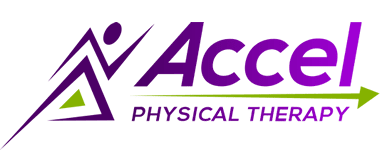During my interview for Accel back in 2020, one tough question Scott asked me was “What are you trying to accomplish at the initial evaluation.” Just having graduated and passed my board exam, my mind raced for the right answer such as ruling out red flags, clearing proximal to distal, and coming up with a comprehensive treatment plan. His response to each of those answers was “yes, but these are givens, what are you trying to accomplish.”
The answer was earning patient buy-in. Coming up with a plan that the patient understands and agrees with is the foundation that is essential in any rehab process. We could have every answer, know exactly what’s going on, and come up with the perfect treatment approach and program that will be the most efficient and effective, however if the patient doesn’t buy-in to the plan, none of that will mean anything. Even if they continue to attend most appointments and do their exercises fairly consistently, if they don’t fully understand what they are doing and why they are doing it, their progress will be limited.
There are a few components to earning “buy-in” and the first is simple. It’s listening. A clear treatment plan has specific goals, and these goals must be patient-created. After asking the patient how their pain or dysfunction began, our next topic should be what success will look like to them. It’s easy for us as therapists to come up with goals that we think our patients can achieve, however if that’s not important to them, it means nothing.
The next component is honesty. After listening to the patient’s goals, evaluating their condition, and understanding all the contributing factors; the patient deserves an honest, professional opinion on if and how theirgoals can be achieved. We won’t always have all of the answers. I’ve found that my patients will put just as much, if not more effort into their rehabilitation if you tell them in 4 weeks we may not have made enough progress and we’ll be moving onto plan B if we aren’t where we think we should be; compared to if we were to guarantee success in a specific time frame. In fact, there are very few instances where I will tell me patients on day one “we’ve got this in the bag.” Most cases will take commitment, consistency, and continued problem solving throughout the course. A successful rehab plan is different for each patient.
not have made enough progress and we’ll be moving onto plan B if we aren’t where we think we should be; compared to if we were to guarantee success in a specific time frame. In fact, there are very few instances where I will tell me patients on day one “we’ve got this in the bag.” Most cases will take commitment, consistency, and continued problem solving throughout the course. A successful rehab plan is different for each patient.
The last component is coming up with a treatment approach that will work for the patient. After 30-40 minutes of getting to know them and their lifestyle, we should have a fairly good idea what will work for them as far as a treatment program. We may have a patient that would benefit incredibly from a home exercise program consisting of 6 exercises that they perform twice per day, but if that won’t fit their lifestyle, we’ve got to be more selective and realistic. The same goes for attending appointments and making lifestyle changes. If our patients can’t get to the clinic twice per week or stop doing that repetitive task at work that caused their injury, we’ve got to do some problem solving to come up with a solution that works.
When we put in the effort to listen, be honest, and flexible with our treatment plan, our patients will see that. They know we’re on their team, and that they’ve got to put in the effort on their end, just like we’re putting in on ours. That process instills success!
-Cody Hall, PT, DPT, ATC

